Edinburgh school takes a stand to stop teen toilet vaping
- Published
Watch: The Edinburgh school installing detectors to tackle vaping
A Scottish secondary school is saying "enough is enough" to the escalating problem of teenage vaping.
The Royal High School in Edinburgh is one of the first in the country to install vape detectors in its toilets.
Like most schools it has been fighting a losing battle against vaping on the premises.
But head teacher Pauline Walker said it had taken a stand by introducing detectors that let out a screaming alarm if vaping happens nearby.
She told BBC Scotland News: "We want to send a message loud and clear. Vaping is not acceptable. We will not permit it. We will not promote it."
The Royal High has invested about £1,000 in the detectors, which were wired into the three main toilets in the school at the start of March.
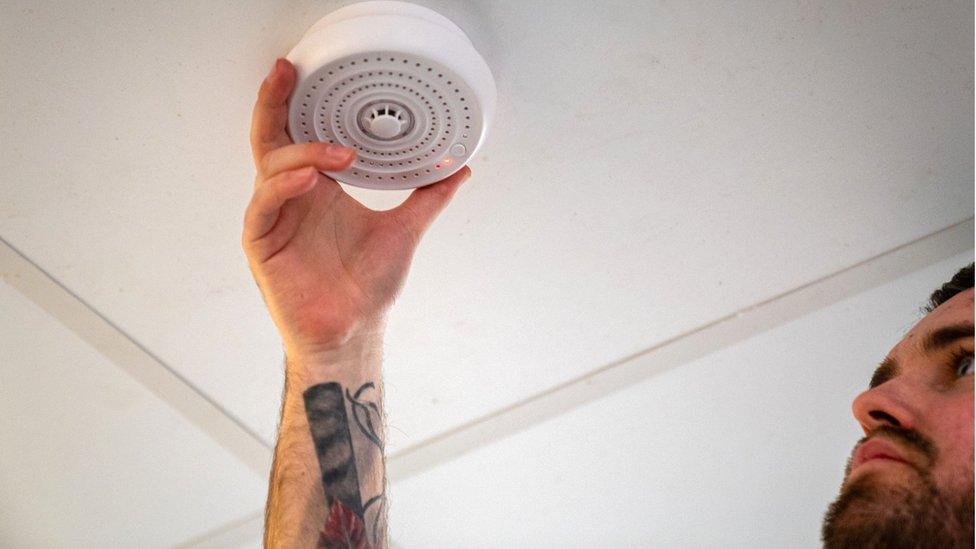
The Royal High School has had vape detectors installed in its main toilet areas
They work like smoke detectors, but they pick up chemicals that are present in vape mist.
If pupils vape, the alarms go off immediately and a text message alerts staff.
They are already working as a deterrent.
Since being switched on, the school has had "almost zero activations" in the bathrooms.
Installing the alarms in the toilets has allowed pupils to reclaim a space that was becoming intimidating for younger pupils - and allowed staff to concentrate on other areas.
Ms Walker hopes it will make young people less likely to continue the habit and harm their health.
She said: "They are nicotine-based and unfortunately a lot of the vapes young people get a hold of are on the black market.
"They don't have the controlled nicotine levels in them, so they can be very high so we do see young people who are addicted.
"As a school we need to support them to give that up the same way we would with smokers."
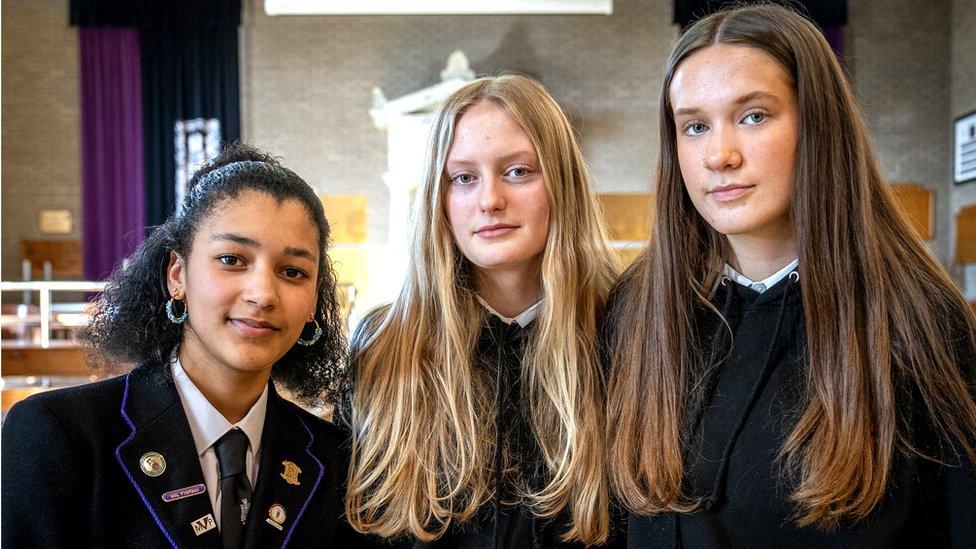
Pupils Melissa, Klara and Aoife are glad the toilets have been reclaimed from groups of vapers
The move has made life a bit easier for pupil support teacher Iain Welsh.
On one of his regular patrols of the school building, BBC Scotland News sees him catching a group of pupils vaping when they should be in class.
After sending them on their way, he says: "It's a constant battle. We move them on and they find somewhere else, but we are committed to this to try and break a pretty negative cycle.
"The detectors are going to be a game changer."
He said vaping was a problem which affected pupils between S1 and S6, whereas cigarettes tended to be an issue for those in older years.
BBC Scotland News contacted Scotland's 32 local authorities to ask about vaping in schools. Not every council could provide the data - but the 10 that did respond gave a snapshot of an escalating problem.
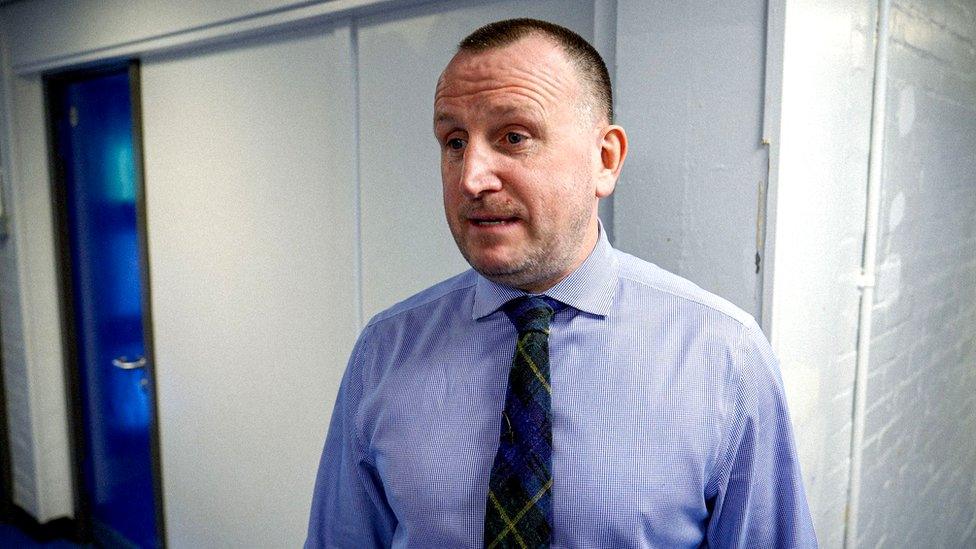
Pupil support leader Iain Welsh patrols the school trying to move young people on who are vaping
In the last five years, at least 770 vapes were confiscated at schools in those areas - which include Aberdeen, Dumfries and Galloway, East Lothian, Stirling and West Dunbartonshire.
A total of 16 young people were either suspended or expelled.
Police were called to schools on eight different vaping-related incidents, and ambulances attended more than a dozen times.
There were far fewer incidents involving cigarettes over the same time period in those council areas.
There were just 27 confiscations involving cigarettes, and no pupil was expelled or suspended in relation to cigarettes.
The latest Public Health Scotland survey, external of health behaviour in school-aged children - covering 2022 - reported that more than a third (36%) of 15-year-olds had used an e-cigarette at least once and a quarter were current users.
Pauline Walker said social education teachers at the Royal High School had found that at least 50% had tried or were currently vaping.
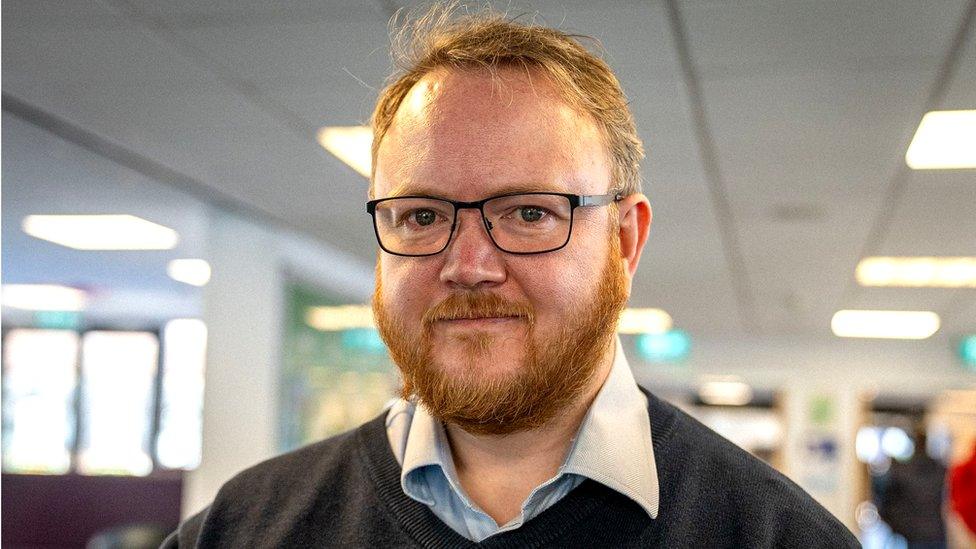
Chris Davison, from Royal High's parent council, called vaping a "national crisis"
Chris Davison, chairman of the Royal High's parent council, said vaping was discussed at nearly every meeting.
"A lot of parents are concerned about the health impacts of vaping and the anti-social behaviour element," he said.
Mr Davison said there was also an environmental issue with single use vapes, and called the situation a "national crisis".
Back at the school, senior pupils are well aware of the problem.
Sixth year student Klara said vaping was now "normalised".
She said: "Whether it's social gatherings or out and about, it's peer pressure, it's the new thing and it has become a habit."
Melissa said: "The fun colours and flavours make it more fun and less dangerous."
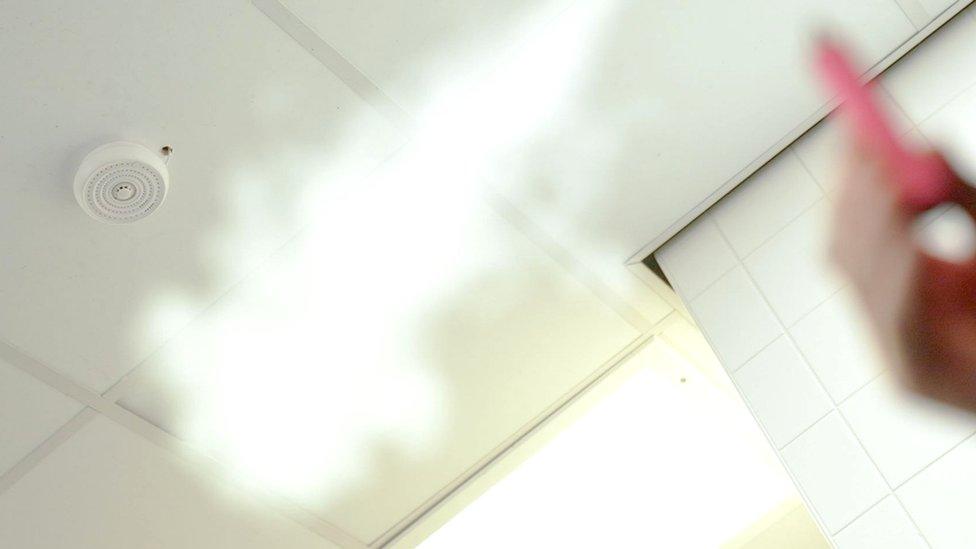
The vape detectors work like smoke alarms but pick up the chemicals in vaping liquids
Aoife added: "I have seen on Snapchat, other people reposting things where people are giving out vapes - and some shops don't check for ID. Those places get known and everyone goes there."
She said she was glad the school had taken positive action with the detectors.
"I'm older but even I am a bit intimidated when there are big groups of people vaping in the bathrooms, so I can see how it can have an effect for younger years."
The Scottish government's public health minister Jenni Minto told Holyrood that while smoking rates are at an all-time low, there has recently been a "notable increase" in young people using vapes.
Ms Minto was speaking as she confirmed that UK-wide legislation aimed at curbing vaping would apply in Scotland.
She said the UK government would shortly bring forward a legislative consent memorandum, which allowed Westminster to pass laws in what were usually devolved areas.
The legislation will mean people born on, or after, 1 January 2009 will never legally be able to buy cigarettes.
It also includes new powers to regulate the display, contents, flavours and packaging of vapes and nicotine products.
The Scottish government also intends to ban the sale of single-use vapes from 1 April 2025, something Ms Minto said had "overwhelming support".